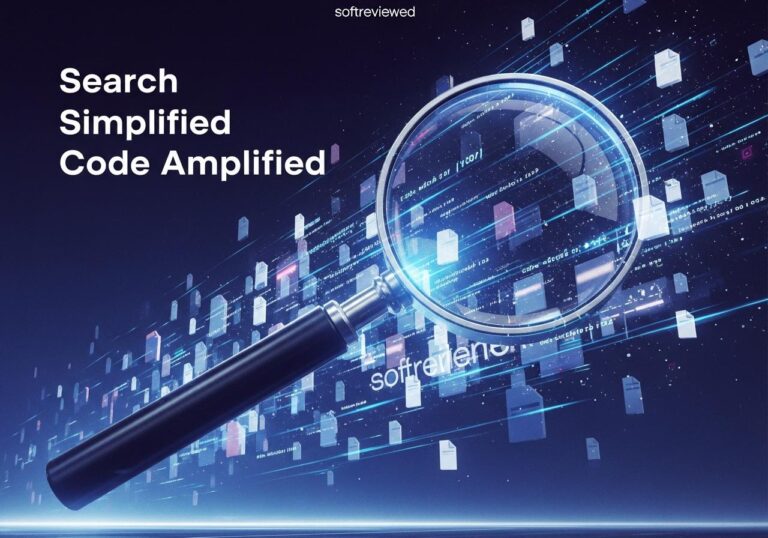GitHub Copilot: Will Your AI Pair Programmer Soon Be Open Source?
Recent developments suggest GitHub is moving toward a hybrid model, balancing open-source community contributions with commercial capabilities
Enterprise-Ready Coding Agent
GitHub Copilot now integrates seamlessly into GitHub and VS Code, enabling asynchronous Agentic DevOps workflows across various coding environments. This enterprise-grade solution streamlines development processes while maintaining security standards.
Open-Sourcing Copilot Chat in VS Code
In a significant move toward transparency, GitHub is open-sourcing Copilot Chat in VS Code. This community-driven development approach provides access to core functionality while maintaining premium commercial capabilities, striking a balance between openness and sustainability.
Premium Request Model Starting June 4
A new token-based system will consume 1 token per agent-initiated model request, carefully designed to balance cost considerations with advanced functionality. This approach ensures sustainable service delivery while providing value to developers.
Security-Focused Configuration
Customizable workflows using GitHub Actions provide verifiable execution trails specifically designed for regulated industries. These security enhancements ensure compliance while maintaining development velocity, addressing a key enterprise concern.
Cross-Ecosystem Integration
Expanded support for JetBrains, Eclipse, Xcode, and third-party AI models like Grok 3 preserves developer choice and flexibility. This ecosystem approach prevents vendor lock-in while maximizing productivity across different development environments.
GitHub Copilot, the AI-powered coding assistant that has become a staple for many developers, might be heading towards an open-source future. But what does that mean for you, your workflow, and the broader AI-assisted coding landscape? Let's explore the potential shift and what it could entail. This article examines the possibilities of GitHub Copilot and its potential transition to open source, including its impact on AI development and the competitive landscape with existing open source alternatives.
The Buzz Around a Copilot Open Source Move
Recent discussions and even some forward-looking articles suggest that parts of GitHub Copilot may become open source, specifically within the Visual Studio Code (VS Code) environment. This wouldn't necessarily mean the entire Copilot model is going open source, but rather key components and integrations, particularly the Copilot Chat extension within VS Code. News surrounding the potential open-sourcing of GitHub Copilot sparked from announcements at Microsoft Build. Some articles point to Microsoft open-sourcing GitHub Copilot in VS Code.
What Does "Open Source" Actually Mean for Copilot?

Before we get too far, let's clarify what "open source" means in this context. Open sourcing GitHub Copilot (or parts of it) would likely involve releasing the source code of certain components under an open-source license like MIT. This would allow developers to:
- ✅ View the code: Examine how the Copilot Chat extension functions.
- ✅ Modify the code: Customize the functionality to suit specific needs.
- ✅ Distribute the code: Share modified versions with the community.
- ✅ Contribute to the code: Submit improvements and bug fixes.
It's important to note that the core AI model powering Copilot would likely remain proprietary, as training and maintaining such a model requires significant resources. The open-source aspect would primarily focus on the VS Code extension and related integrations.
🤔 How Would Open Sourcing Copilot Change Development?
If GitHub Copilot, or at least parts of it, transitioned to open source, we could see some significant changes in the software development world.
📌 Benefits of an Open Source Copilot
- Greater Transparency: Open source allows developers to see exactly how Copilot Chat collects and uses data, addressing privacy concerns.
- Community-Driven Improvements: A larger community of developers can contribute to improving the tool, leading to faster bug fixes and new features.
- Customization: Developers could tailor Copilot's behavior to their specific coding styles and project requirements.
- Innovation: Open source fosters experimentation and the creation of new AI-powered coding tools.
- Security: As with all open source projects, having more eyes on the code will help identify and fix security issues faster.
📌 Potential Drawbacks to Consider
- Fragmentation: Multiple forks of the project could lead to inconsistencies and compatibility issues.
- Maintenance Burden: Maintaining an open-source project requires significant effort, including reviewing contributions and providing support.
- Commercial Viability: Balancing open-source development with the need for a sustainable business model can be challenging.
- Complexity: Contributing to the project might be more difficult for novice developers, initially limiting community involvement.
Competing in the AI-Assisted Coding Arena
GitHub Copilot isn't the only AI-powered coding assistant on the market. Several alternatives offer similar functionality, some with an open-source approach:
- Tabnine: Offers AI-powered code completion, with a free tier and paid plans.
- Codeium: Provides smart code completions and refactoring, also with a free tier.
- Amazon CodeWhisperer: Integrates with AWS services for code completion and documentation generation.
- FauxPilot: A self-hosted, open-source alternative that prioritizes privacy.
🆚 GitHub Copilot vs. The Open Source Alternatives
| Feature | GitHub Copilot | Open Source Alternatives (e.g., FauxPilot) |
|---|---|---|
| Core AI Model | Proprietary (OpenAI) | Self-hosted or community models |
| Customization | Limited | High |
| Data Privacy | Centralized, controlled by GitHub | Decentralized, user-controlled |
| Community Support | GitHub and Microsoft | Community-driven |
| Cost | Subscription-based | Often free (but may require self-hosting resources) |
Expert Takes: Weighing the Pros and Cons
The potential open-sourcing of GitHub Copilot has sparked debate among industry experts. Some believe it would democratize AI-assisted coding, while others worry about the challenges of maintaining a complex open-source project.
According to various sources, Microsoft is committed to transparency, community-driven innovation, and giving developers a greater voice in shaping the future of AI-assisted development. This commitment aligns with the open-source philosophy and could pave the way for a more collaborative development model for GitHub Copilot.
The Road Ahead: What Could an Open Source Copilot Look Like?
If GitHub Copilot embraces open source, here's a possible scenario:
- Gradual Release: GitHub could start by open-sourcing specific components, such as the VS Code extension or integration libraries.
- Community Engagement: GitHub could actively encourage community contributions through bug bounties, feature requests, and documentation improvements.
- Hybrid Model: GitHub could maintain a proprietary core AI model while open-sourcing the surrounding tooling and integrations.
- Ecosystem Development: GitHub could foster an ecosystem of open-source plugins and extensions that enhance Copilot's functionality.
🚀 Embracing Openness: A New Era for AI-Assisted Coding?
The possibility of GitHub Copilot going open source represents a potentially exciting shift in the AI-assisted coding landscape. While challenges undoubtedly exist, the benefits of increased transparency, community involvement, and innovation could outweigh the risks. The move towards open source reflects a commitment to transparency, community-driven innovation, and giving developers a greater voice in shaping the future of AI-assisted development.
Whether GitHub Copilot fully embraces open source or adopts a hybrid approach, the future of AI in coding is likely to be more collaborative, customizable, and community-driven than ever before. It's a space worth watching closely.
For more information, check out the official GitHub Copilot website to stay up-to-date on the latest news and features.







